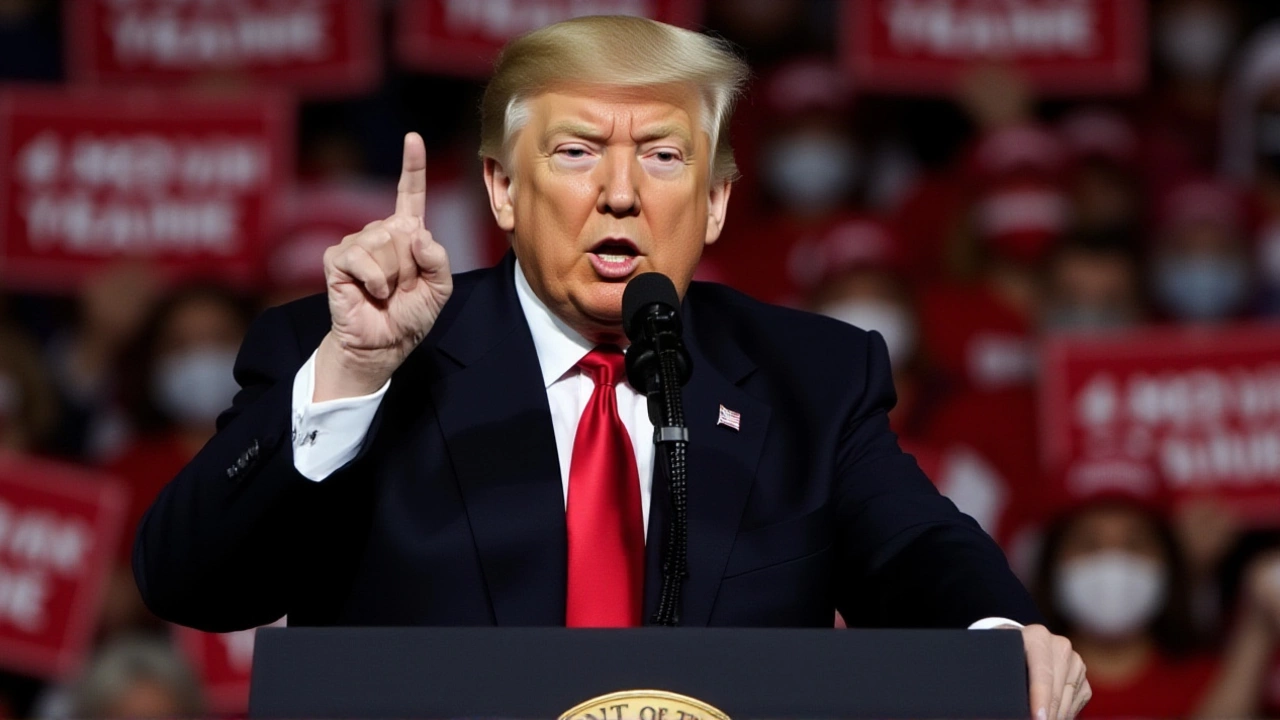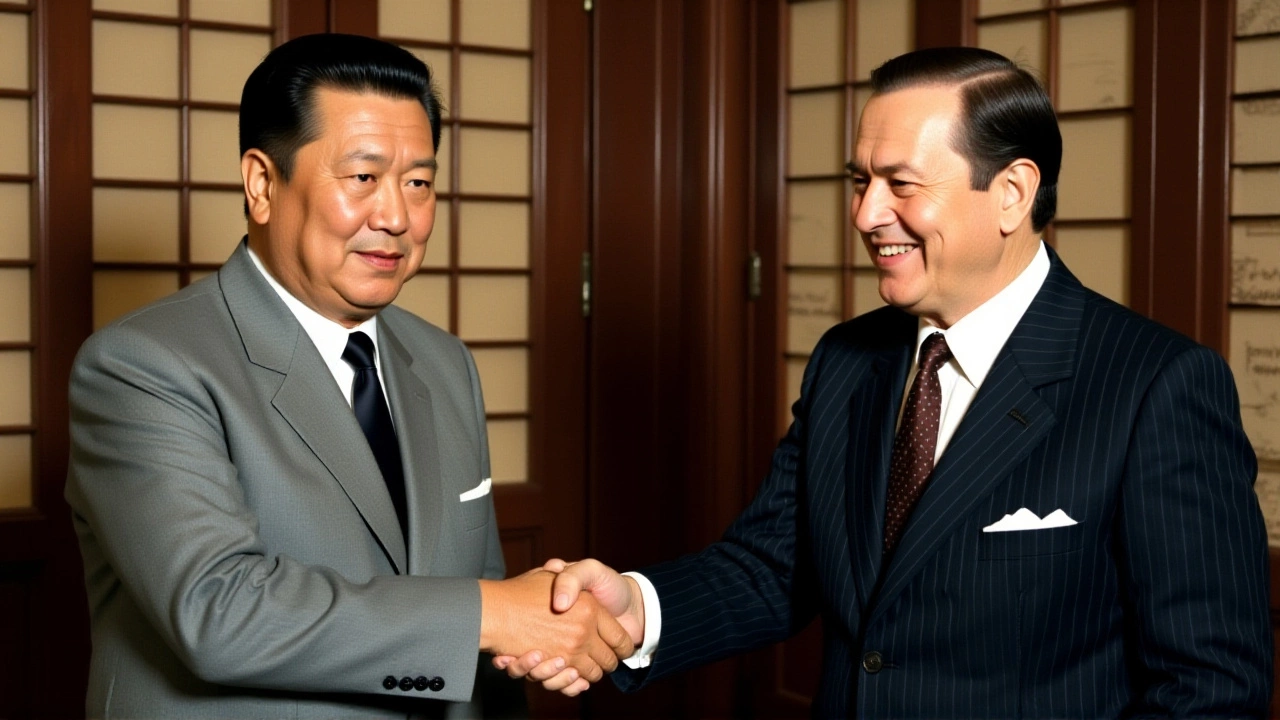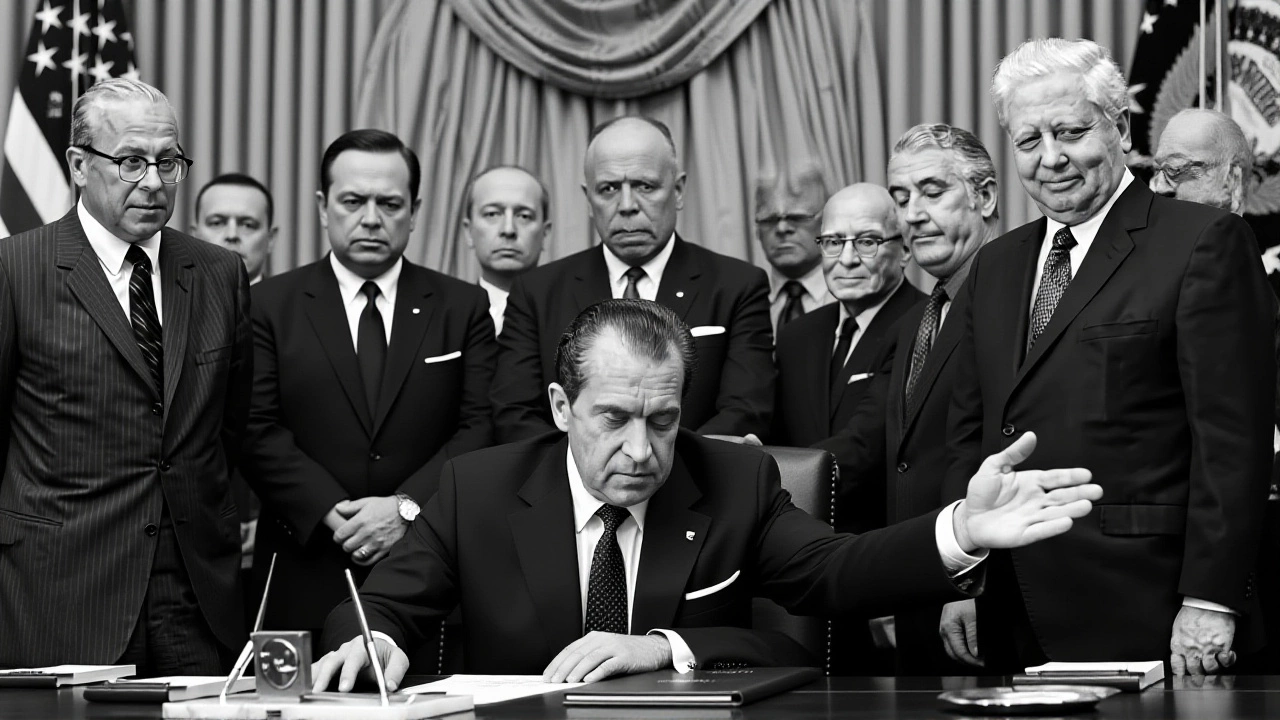When Richard Nixon stepped down on August 9, 1974, he didn’t just leave office—he broke a precedent. For the first time in U.S. history, a president resigned under threat of impeachment, undone by his own secret tapes and the weight of institutional accountability. But here’s the twist: Watergate didn’t teach future leaders restraint. It taught them how to survive without it.
The Nixon Paradox: Resignation as a Mistake
Nixon’s downfall came after his ‘plumbers’ unit broke into the Democratic National Committee headquarters at the Watergate complex, then tried to bury it. When investigators came knocking, he initially obstructed. But then, something unexpected happened: he surrendered the Oval Office recordings. He cooperated—until it was too late. That act of submission, not the crimes themselves, became his fatal flaw. According to The Fulcrum’s October 2, 2025 analysis, later presidents saw Nixon’s resignation not as a moral reckoning, but as a tactical blunder. "The mistake wasn’t the abuse of power," they concluded. "It was giving in."Reagan’s Iran-Contra: Stonewalling as Strategy
By the time Ronald Reagan faced the Iran-Contra scandal , the playbook had changed. Reagan’s National Security Council, led by Oliver North and John Poindexter, secretly sold arms to Iran—despite an embargo—and funneled $48 million to Nicaraguan Contra rebels, violating the Boland Amendment . When exposed in November 1986, the White House didn’t cooperate. It stonewalled. It invoked national security. It wrapped lies in patriotism. The Tower Commission found systemic misconduct. Congress held hearings. Fourteen people were indicted. Not one went to prison. North and Poindexter’s convictions were overturned on technicalities. Reagan’s approval rating? Still above 60%.Jefferson’s Shadow: The Original Abuse of Power
To understand how far things have drifted, look back further—to Thomas Jefferson. In 1807, Jefferson, then president, personally directed the prosecution of former Vice President Aaron Burr for treason, based on a letter historians now believe was doctored by General James Wilkinson, head of the U.S. Army’s Western Department in New Orleans. Jefferson wrote daily letters to U.S. Attorney George Hay, telling him what evidence to release, which legal motions to oppose, and even how to spin constitutional law. "I will readily avail myself of the remarks you have communicated," Hay replied. The trial, presided over by Chief Justice John Marshall in Richmond, Virginia, ended in acquittal—but Jefferson’s interference set a precedent: the president doesn’t just lead the executive branch. He can hijack justice.
Trump’s Playbook: Defiance as Power
Donald Trump didn’t just learn from Nixon’s mistake—he perfected it. When impeached in December 2019 for pressuring Ukraine to investigate Joe Biden, Trump refused all subpoenas, called the process a "witch hunt," and turned congressional hearings into campaign rallies. After the January 6, 2021 Capitol riot, he was impeached again. The Senate acquitted him. His base didn’t waver. The Republican National Committee passed a resolution on January 28, 2021 declaring him the "legitimate winner" of the 2020 election, despite Joe Biden’s 306 electoral votes to Trump’s 232. Trump’s legal team filed over 60 lawsuits challenging the results. The Supreme Court rejected Texas v. Pennsylvania on December 11, 2020—clearly, legally, definitively. Trump didn’t retreat. He doubled down.He didn’t just deny the election. He turned denial into a political asset. His 2024 campaign isn’t about policy—it’s about proving he can survive. And he has. The Manhattan District Attorney’s Office indicted him on March 30, 2023. The Department of Justice followed on August 1, 2023. He’s the first former president criminally charged. Yet his polling leads. His rallies sell out. His donors give more.
The Hollowing Out of Accountability
The arc of American scandal has bent toward impunity. Nixon resigned. Reagan survived. Jefferson manipulated. Trump thrived. What’s changed isn’t the scale of misconduct—it’s the cost of getting caught. No prison time for Iran-Contra’s architects. No consequences for overturning an election. No political cost for lying under oath, inciting violence, or obstructing justice. The system, once a check, has become a stage. The powerful don’t fear exposure anymore. They weaponize it.It’s why The Fulcrum calls this era a "hollowing out" of democracy. The lesson isn’t that power must be restrained. It’s that power, when wielded with enough audacity, becomes untouchable. Nixon thought the rule of law would save him. Trump knows better. He doesn’t need to be innocent. He just needs to be unbreakable.

What’s Next? The New Normal
Trump’s 2024 campaign isn’t an anomaly. It’s the endpoint of a 50-year evolution. Future presidents won’t be judged by their compliance with norms—they’ll be judged by their ability to defy them. The Justice Department’s independence is now a political bargaining chip. The media’s credibility is weaponized as "fake news." The courts? A waiting room for partisan appeals.What happens when the next president, emboldened by Trump’s survival, refuses to leave office even if he loses? The legal mechanisms are still there. But the political will? That’s what’s missing. The system has been tested. And it’s been taught to flinch.
Frequently Asked Questions
Why didn’t anyone go to prison for Iran-Contra?
Despite 14 indictments, no one served prison time because convictions were overturned on technical grounds—mainly that witnesses were granted immunity in exchange for testimony. Oliver North’s conviction was reversed in 1990 after an appeals court ruled his immunized congressional testimony may have tainted his trial. The Reagan administration’s legal strategy was never about innocence—it was about delay, obfuscation, and leveraging Cold War patriotism to shield insiders.
How is Trump’s conduct different from Nixon’s?
Nixon tried to hide his crimes and eventually submitted to legal processes, resigning when the evidence became undeniable. Trump, by contrast, openly defied investigations, refused to concede elections, and turned legal battles into political rallies. Where Nixon’s downfall came from cooperation, Trump’s rise came from resistance. His power isn’t derived from institutional legitimacy—it’s drawn from the loyalty of a base that sees his defiance as strength.
Did Thomas Jefferson really interfere like that?
Yes. Historical records, including Jefferson’s own letters to U.S. Attorney George Hay, prove he directed the prosecution of Aaron Burr in real time—telling Hay what evidence to release, which motions to file, and even how to argue constitutional principles. Jefferson saw Burr as a traitor and treated the trial as a political mission. Chief Justice John Marshall later rebuked him for overreach, but Jefferson’s actions set a precedent: the president can be the prosecutor-in-chief.
Why does the Republican National Committee still back Trump?
The RNC adopted a resolution on January 28, 2021, declaring Trump the "legitimate winner" of the 2020 election—a move that aligned the party’s institutional identity with his narrative. This isn’t just loyalty; it’s survival. Trump controls the GOP’s base, donors, and media ecosystem. To oppose him is to risk primary challenges and funding cuts. The RNC’s stance reflects a party that has redefined itself around Trump’s brand of defiance, not constitutional norms.
Is there any historical precedent for a president refusing to leave office?
No modern president has outright refused to leave office after losing an election. But Jefferson’s interference in Burr’s trial and Andrew Jackson’s defiance of the Supreme Court in Worcester v. Georgia (1832) show that presidents have long tested constitutional limits. What’s new is the scale: Trump’s refusal to concede, combined with mass public belief in election fraud, created a crisis of legitimacy that no previous scandal matched.
What does this mean for future elections?
If a president can lose an election, challenge its legitimacy, face multiple indictments, and still win the next one, then elections become performances rather than determinations of power. The risk isn’t just fraud—it’s the erosion of public faith in the outcome itself. Democracy doesn’t collapse with a coup. It fades when people stop believing the rules matter.

